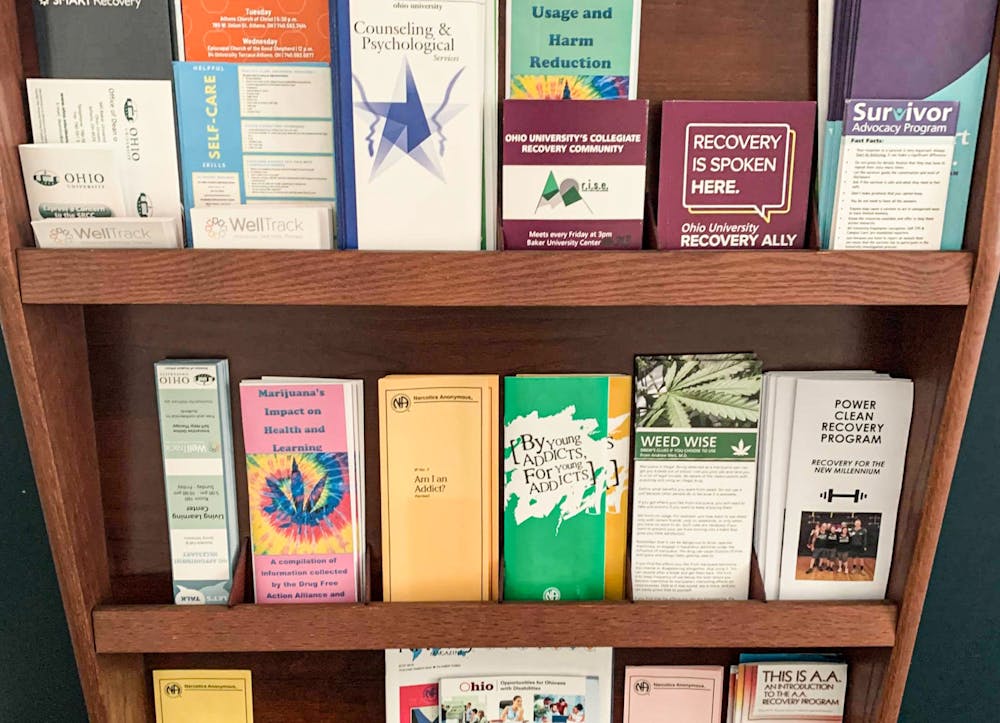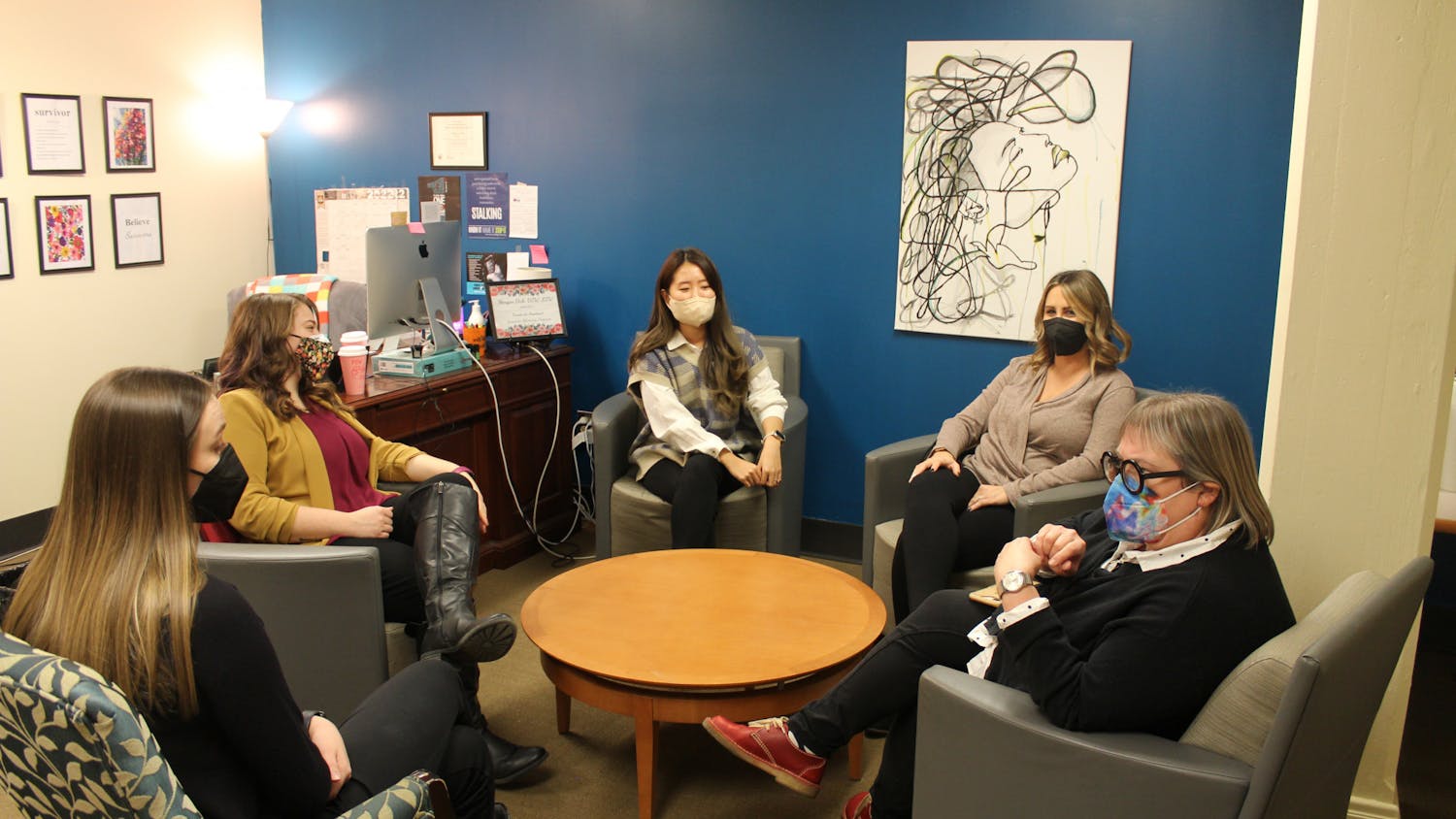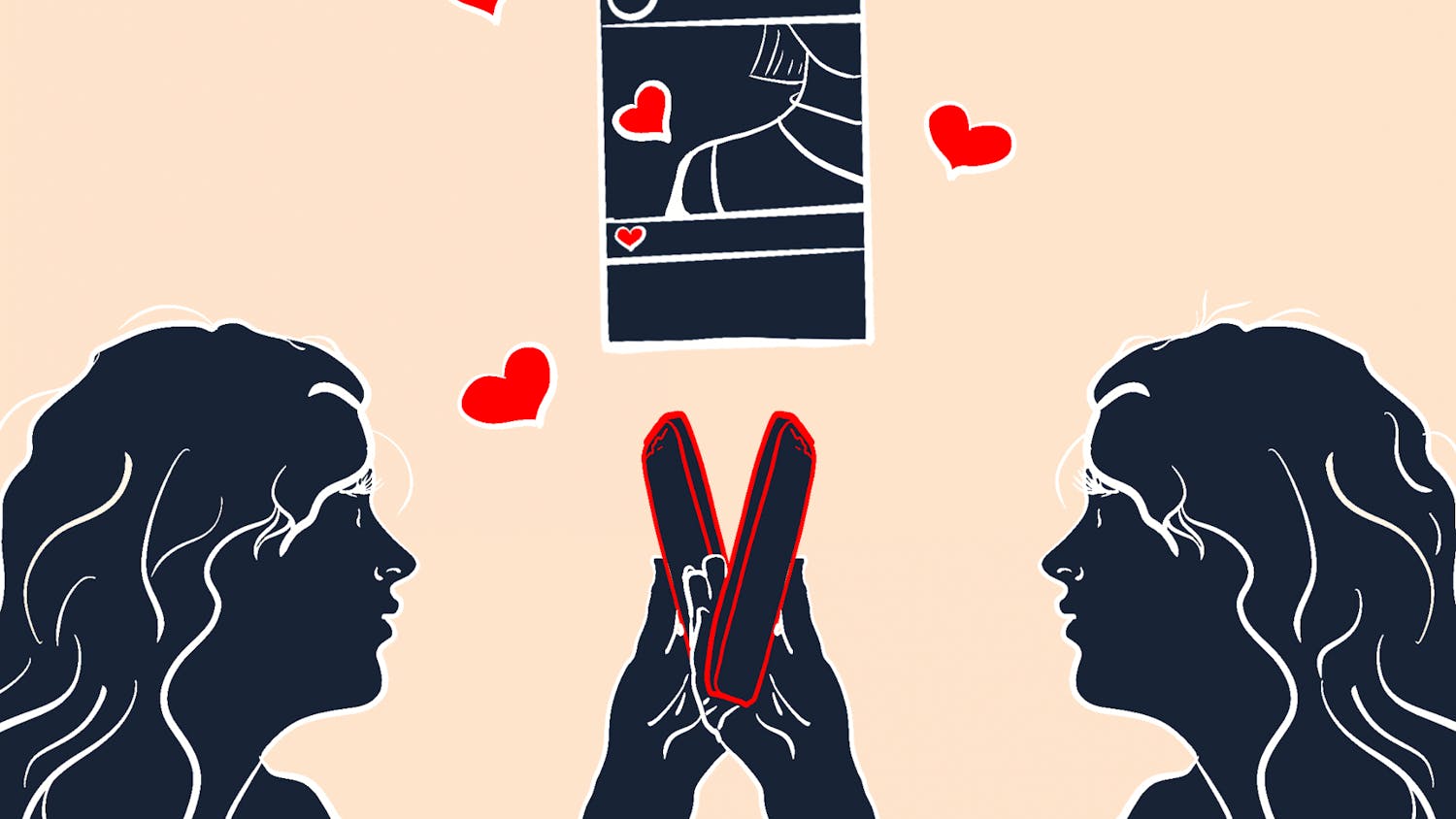Rick Weber believes support for people recovering from substance use disorders can promote holistic wellness by using methods not incorporated by traditional options.
So, Weber, a Pomeroy resident, founded the Power Clean Fitness Recovery Group. Partnering with WellWorks at Ohio University, Weber piloted the support group for people recovering from substance use disorders in 2019. The Power Clean Fitness Recovery Group convened in a WellWorks exercise room for one-hour workouts three times a week.
Participation in programming varied weekly, but most attendees were between the ages of 20 and 40, Weber said. He did not remember any OU students coming to group meetings but hoped to change that. In fact, Weber said he envisioned several ways in which the Power Clean Fitness Recovery Group could be adjusted to better provide for attendees' wants and needs.
However, he was not able to revise the program before the Power Clean Fitness Recovery Group unknowingly met for the final time in March 2020. The COVID-19 pandemic halted group exercise classes indefinitely. Weber’s Power Clean Fitness Recovery Group has not met since then.
Now, two years later, Weber occasionally contemplates restarting the recovery group. Weber has big visions for the future of the organization, but he continues to let that deep-rooted care for providing addiction recovery support guide his actions. The Post sat down with Weber to discuss the program and its start.
The Post: Are you still involved with the Power Clean Fitness Recovery Group?
Weber: It's dormant right now because (we have) not been able to have group exercise stuff, but it was a great experience. The college basically sponsored me, gave me the space and paid for the trainers.
TP: How was the idea of the Power Clean Fitness Recovery Group born?
Weber: I had 14 years of uninterrupted sobriety while I was raising (my three kids), so I know a little bit about recovery firsthand in that, and then I read a lot of papers. I read recreationally and basically spend a couple hours looking at AP, Reuters, New York Post, New York Times, Washington Post, Washington Times. The New York Times has a “Well” column. I just started reading it a lot. Different things popped out at me. They have found with heroin addiction, it takes normally six to eight to 10 months for your brain to rewire itself. But with exercise and a diet based on earth-based nutrients, you can cut that (time) in half. So, I found out all that, then talked to Jenn Bennett (at WellWorks) about my ideas and put something together, and she backed me.
TP: You've mentioned group exercise as an essential component of Power Clean Recovery. Did you offer other programming as well?
Weber: Well, I had a lot of stuff planned, a lot of ideas, but a lot of things could not get to fruition because I didn't have a big enough group of people. I wanted to have nutritionists come in to try to re-educate (Power Clean participants) about eating fruits and vegetables and things like that. I tried scheduling that, but what happens is people that are recovering addicts and people that are active addicts — I had people that are still using coming — so they're there, but then the next Wednesday, (they say) ‘I got to see my counselor’ or ‘I have to do that.’ So, I was just in a position where I didn't want to invite people to come in and have (no Power Clean participants) there. Hindsight being 2020, I would do so many things differently. It was like basically a one-man show.
TP: What aspects of Power Clean Fitness Recovery Group would you address differently if you had the chance to revive the program?
Weber: I need a partner, somebody to do the website, the social media and all electronic communications that I don't have the skills for, and I’ll need to find somebody to take my ideas and run with (them). We’ve designed a program, so it can go anywhere. And one of the examples I used in the redesign is that you could do it in a fire hall or you can use some yoga mats. The military has been training people with calisthenics for 100 years. You don't need all kinds of equipment to exercise. It's more to get together. I hoped it would evolve, so we could do groups afterwards. It's a fitness program, but it's not like you need personal trainers for it. But that's for the future, if it happens.
TP: You started this because you wanted to make a positive difference in people's lives. Do you think you were able to do that?
Weber: Yeah, as a matter of fact, my wife’s son now has 10 months of sobriety. He was one of the (people) that came to the class. And, well, if you save one life, isn't it worth it?






